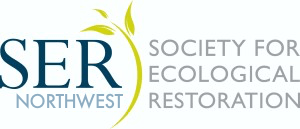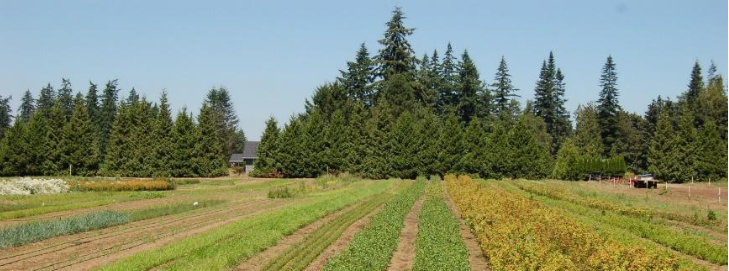
2020 Chapter Award Winners
2020 Northwest Chapter Awards
Each year, SERNW recognizes outstanding individuals and efforts in restoration throughout our Cascadia Bioregion. SERNW gives out 3 awards each year – Restoration Project of the Year, Restorationist of the Year and a Special Award with a theme selected by the SERNW board each year. This year’s theme for the Special Award “In the Business of Restoration” and aimed to recognize those businesses or organizations contributing to ecological restoration in the Cascadia Bioregion through production or innovation of products used in restoration. The 2020 award winners are high-lighted below.
RESTORATION PROJECT OF THE YEAR
To be awarded to a public, private, non-profit- owned and/or sponsored/implemented restoration project, or a collaboratively-owned and/or implemented restoration project making a significant contribution to restoration in the Cascadia bioregion.
Meachum Creek Watershed Restoration – Umatilla Indian Reservation
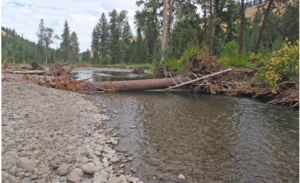 The 2020 Restoration Project of the Year was awarded to the Confederated Tribes of the Umatilla Indian Reservation for their work restoring the Meachum Creek watershed. This project is actively restoring ecological processes to several miles of Meachum Creek and its floodplain to promote fish recovery and the sustainability of First Foods and treaty resources for the continued use by the Cayuse (kye use), Umatilla (uma ti ya) and Walla Walla people.
The 2020 Restoration Project of the Year was awarded to the Confederated Tribes of the Umatilla Indian Reservation for their work restoring the Meachum Creek watershed. This project is actively restoring ecological processes to several miles of Meachum Creek and its floodplain to promote fish recovery and the sustainability of First Foods and treaty resources for the continued use by the Cayuse (kye use), Umatilla (uma ti ya) and Walla Walla people.
Meacham Creek is the primary tributary to the Umatilla River in northeast Oregon and like many waterways in the inland northwest, has changed dramatically in the time since European Americans settled in the area. Over one hundred years of human activity, including the construction of the United Pacific Railroad railway in the valley bottom, flood protection diking, and the grazing of livestock has altered and degraded the Meacham Creek watershed and its floodplain. This has resulted in a greatly simplified channel, immature riparian vegetation, high stream temperatures, low summer flows, lack of aquatic habitat complexity, and limited quantities and recruitment of large woody debris (LWD), all contributing to decreased aquatic productivity and altered fluvial processes.
The CTUIR has actively been restoring ecological processes in the Meacham Creek watershed since the 1980s and has more recently invested in three large-scale floodplain restoration efforts: Phase I and Phase II projects (2009 – 2014) between river miles 6.0 and 8.5, and the Bonifer Reach project (2015 – 2020) between river miles 1.9 and 6.0. The overall objectives of these projects have been to provide opportunities for recovery of geomorphic, hydrologic, riparian, and in-stream processes based on historic and reference conditions. Natural recovery is expected to continue decades into the future and on-going monitoring has confirmed the trajectory.
Collectively, the three large-scale restoration efforts removed 3 miles of levees and spur dikes, realigned 2 miles of channel, reconnected 3 miles of side channels, placed 5,000 pieces of LWD, planted 87 acres, and enhanced 5 acres of wetlands. These floodplain restoration projects have already proven to buffer high summer water temperatures, store flood water in the floodplain in the spring to augment summer low flow, enhance aquatic habitat in Meacham Creek, and increase native riparian vegetation throughout the floodplain.
More information on this project can be found at the links below:
Meacham Creek Floodplain Restoration and In-stream Enhancement – Tetra Tech
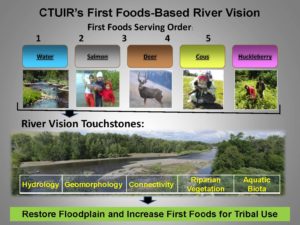
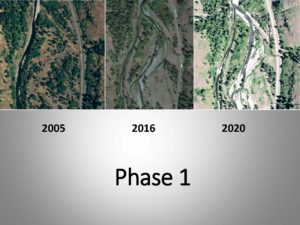
RESTORATIONIST OF THE YEAR
For recognition of individual efforts to promote ecosystem health, integrity and sustainability through ecological restoration.
Lorene Lynn – Soil Scientist (CPSS)/Restoration Ecologist – Red Mountain Consulting
The 2020 Restorationist of the Year which was awarded to Lorene Lynn. Lorene Lynn is the owner of Red Mountain Consulting (RMC), based in Palmer, Alaska, which was established in 2016. Her company provides ecological services including ecological restoration, tundra rehabilitation, and wetland delineation and functional assessment. Lorene is a soil scientist and restoration ecologist specializing in permafrost characteristics and tundra restoration ecology. She was nominated for Restorationist of the Year by her colleagues in Alaska for the initiative and drive she has shown in developing several interesting and creative projects in their region.
From 2016-2019 Lorene built the Heritage Tundra Garden in Utkiagvik (Barrow), Alaska, the northernmost community in the state. The project began under a USFWS habitat enhancement grant for the land behind the Senior Center and morphed into an interactive space where community members and visitors could learn about local plants, especially those used for food and medicine. She worked with a crew of local teens each summer collecting and transplanting hundreds of plants. The project included community plant walks, guided plant walks with community elders, organized kid-oriented activities about permafrost and tundra plants, and salve-making workshops with a local healer. Community participation was high in both the creation of the Heritage Tundra Garden and the associated community-oriented events.
In 2018, Red Mountain Consulting began a first-of-its-kind ecological restoration of an exploratory gas well pad within the Kenai National Wildlife Refuge. This project drew from techniques learned from others (most notably David Polster, CERP, of Polster Environmental Services, Duncan, BC) and included recontouring the ground surface, scattering woody debris, and transplanting vegetation mat and hundreds of trees. The restoration work was completed in 2018, and monitoring in 2020 indicated the site is on track return to forest indistinguishable from the surrounding vegetation. Already, hundreds of trees, shrubs, and forbs, representing at least 15 species, are naturally colonizing the 5-acre site. The success is likely due to extensive roughening of the ground surface to create favorable microsites and the diversity of native vegetation we transplanted. This project involved close cooperation with the Refuge staff, and Lorene particularly enjoyed the crew of student interns who assisted in the implementation.
More information on Lorene’s work can be found on the SERNW feature on restoration in Alaska:
Restoration in Alaska – SER Northwest Chapter
=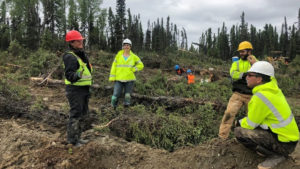
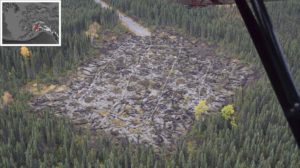
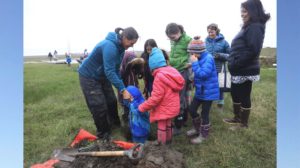
Photo Credit: Lorene Lynn
SERNW SPECIAL AWARD – “IN THE BUSINESS OF RESTORATION”
To be awarded to a person, team or project representing a restoration theme or focus of restoration science and practice chosen annually by the Board of Directors.
Fourth Corner Nurseries – Bellingham, Washington
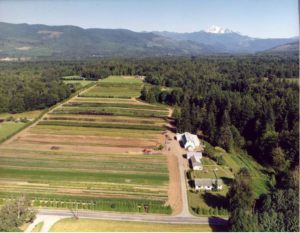 The winner of this year’s Special Award is Fourth Corner Nurseries located in Bellingham, Washington. Fourth Corner Nurseries has been a premier provider of Native Plants to Pacific Northwest restoration efforts since the early 90’s. They are a wholesale grower of native plants from the western region of North America, specializing in bare root trees and shrubs, wetland species, perennials, and bulbs. Their core focus of the preservation of genetic diversity within the now roughly 500 species they routinely propagate and grow, has made them a foundation for many mitigation and restoration projects helping to restore and preserve native species and habitats around the Pacific Northwest.
The winner of this year’s Special Award is Fourth Corner Nurseries located in Bellingham, Washington. Fourth Corner Nurseries has been a premier provider of Native Plants to Pacific Northwest restoration efforts since the early 90’s. They are a wholesale grower of native plants from the western region of North America, specializing in bare root trees and shrubs, wetland species, perennials, and bulbs. Their core focus of the preservation of genetic diversity within the now roughly 500 species they routinely propagate and grow, has made them a foundation for many mitigation and restoration projects helping to restore and preserve native species and habitats around the Pacific Northwest.
It is known that, over time, selective environmental pressures fix the normal mutations and variations represented in the DNA of a species subject to genetic isolation. Botanists and ecologists refer to differences within a species as ecotypes and varieties. Growers recognize that certain seed sources thrive under their naturally adapted growing conditions. To protect the genetic diversity of the plants they grow, Fourth Corner Nurseries adopted US Forest Service standards for all collected seed. It is possible, for example, to obtain seed for an entire crop of ninebark (Physocarpus capitatus) from a single specimen plant. To do this, however, would provide the buyer with a very limited sample of the actual genetic diversity available from this species. Fourth Corner’s approach is to collect seed from many different specimens and populations within each specific region. Experience that bare-root native plants produced in this manner have the best vigor and survival rates.
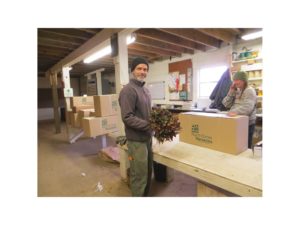 Those that have used Fourth Corner know they can trust the quality, seed source, and appreciate the indexing of lots that ensures success in our Pacific Northwest habitats and preserving our native genetic seed pools. And their unique bare root approach, ensures that symbiotic mycorrhizal associations are already present on the plant when delivered. “We believe that our commitment to propagating native plants from indexed seed sources, and the painstaking care we devote to tracking seed lots from collection to harvest, is what separates us from other native plant producers.”
Those that have used Fourth Corner know they can trust the quality, seed source, and appreciate the indexing of lots that ensures success in our Pacific Northwest habitats and preserving our native genetic seed pools. And their unique bare root approach, ensures that symbiotic mycorrhizal associations are already present on the plant when delivered. “We believe that our commitment to propagating native plants from indexed seed sources, and the painstaking care we devote to tracking seed lots from collection to harvest, is what separates us from other native plant producers.”
Today Fourth Corner Nurseries produces roughly 3 million direct-seeded, field-grown, bareroot plants every year from 1000+ individual seed sources of trees, shrubs, grasses, perennials and emergents. Over the past 38 years they’ve shipped plants to nearly every U.S. state and Canadian province, although the vast majority of their plants end up in the Pacific Northwest. They have worked with government agencies, tribes, non-profit organizations and nurseries, including the US Forest Service, US Fish & Wildlife, the Olympic National Park Elwha dam restoration team, state agencies and municipalities, and nearly every native plant nursery in Washington, Oregon, and British Columbia. They contract grow and tailor seed collections directly to projects for many of SERNW Chapter members in these agencies across the region. Over half of their production is now also shipped to other wholesale native plant nurseries that buy their seedlings for use in their own container production, which is good for our habitats across the region.
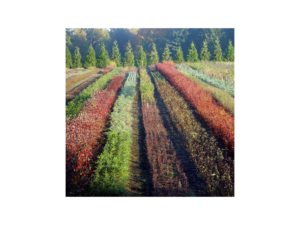
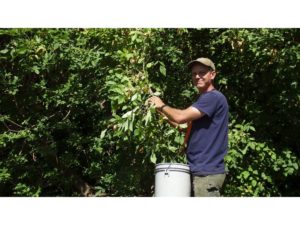
Home | Fourth Corner Nurseries
Photo Credits: Fourth Corner Nurseries
